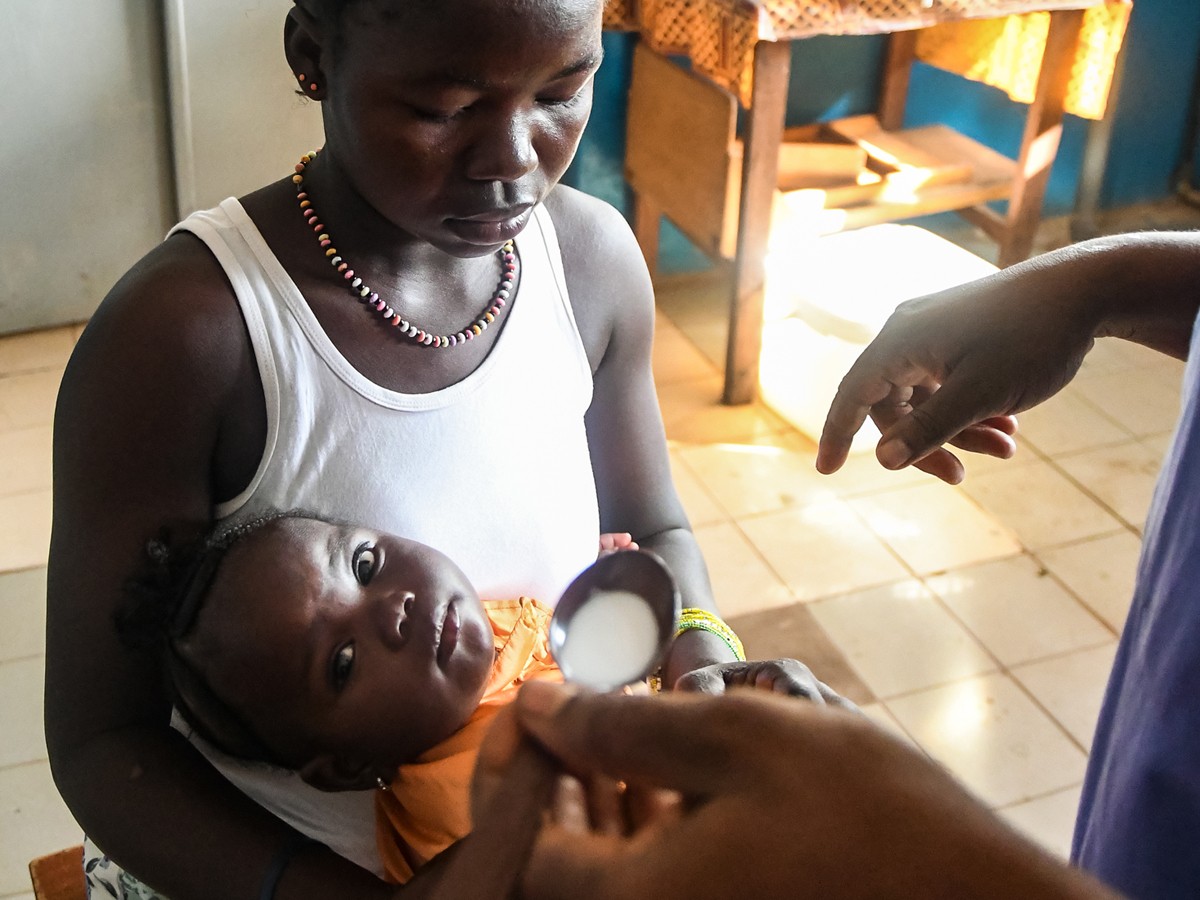Malaria is one of the most serious health challenges in Sierra Leone, where malaria-related illness and death rates are among the highest in the world, especially among children under five years of age.
Protecting these vulnerable lives requires a multi-pronged approach that includes the distribution and use of insecticide-treated mosquito nets, widespread knowledge of malaria symptoms and when to seek medical help, and high-quality diagnostics and treatment at local health facilities.
One additional protection is intermittent preventive treatment in infants (IPTi), a course of antimalarial medicine that infants get along with routine immunizations, regardless of whether they are infected with malaria. The World Health Organization (WHO) currently recommends IPTi in most areas where the risk of malaria transmission is moderate or high—which includes the entirety of Sierra Leone.
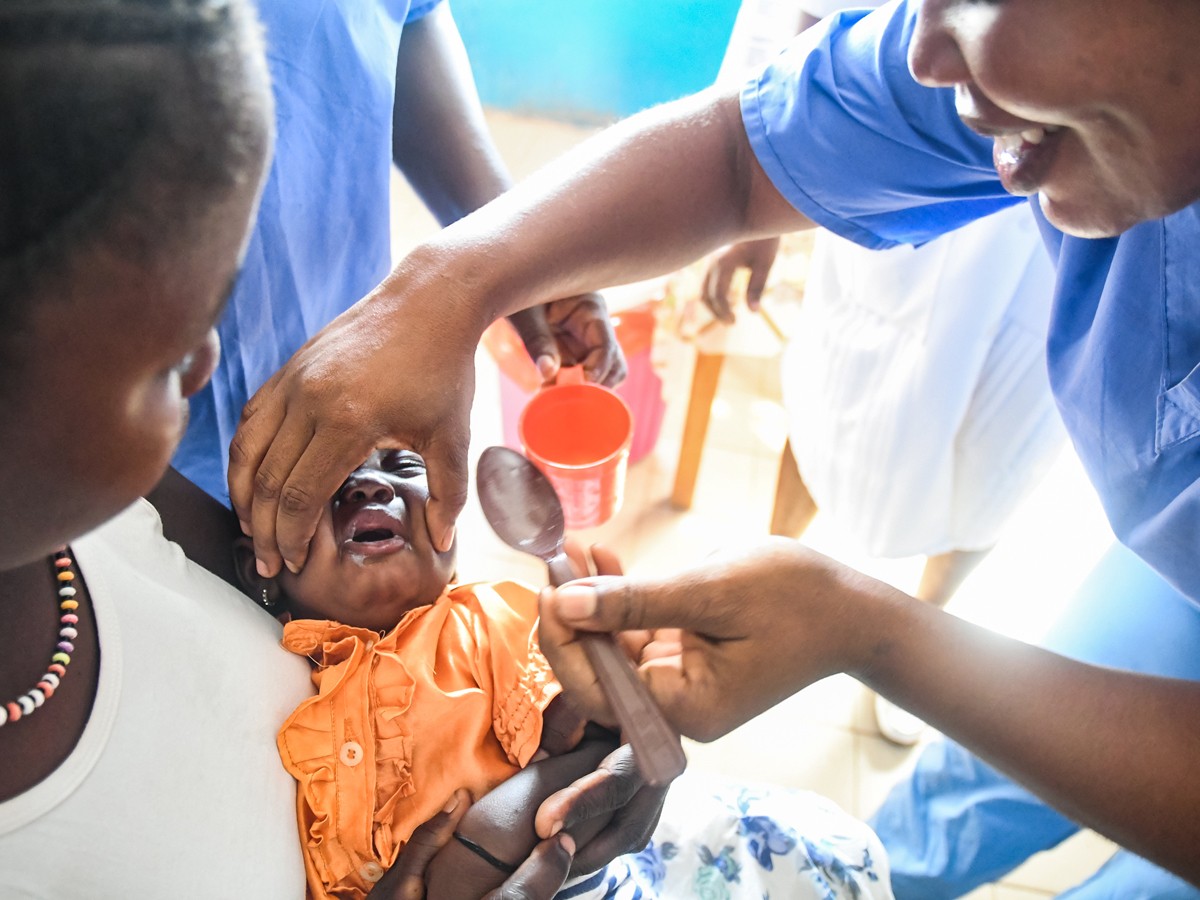
In 2016, ICAP began a partnership with Sierra Leone’s National Malaria Control Program (NMCP), with support from the U.S. Centers for Disease Control and Prevention (CDC), to make the West African nation the first country to roll out IPTi nationwide. The IPTi project began with a pilot in Kambia and expanded to three other districts—Kenema, Pujehun, and Western Area Rural—before scaling up across the country in 2018.
Together, ICAP and NMCP recently completed a two-part evaluation of the pilot in Kambia. The first part included facility assessments, review of data from patient records, in-depth interviews and surveys with facility staff, and focus group discussions with community caregivers. The findings provided a basis for expanding the project from Kambia to the other three districts. The second part of the pilot added a household survey in Kambia to estimate IPTi coverage among infants from three to 15 months of age.
Overall, the evaluation found that Kambia district was able to scale up IPTi swiftly and provide the required health systems support. But the gaps between IPTi and other childhood vaccines show that IPTi coverage leaves room for improvement.
“These results serve as an eye-opener to health workers and community stakeholders to improve the IPTi program in Kambia and in Sierra Leone as a whole,” explained Adewale Akinjeji, MD, MBA, technical director for ICAP in Sierra Leone.
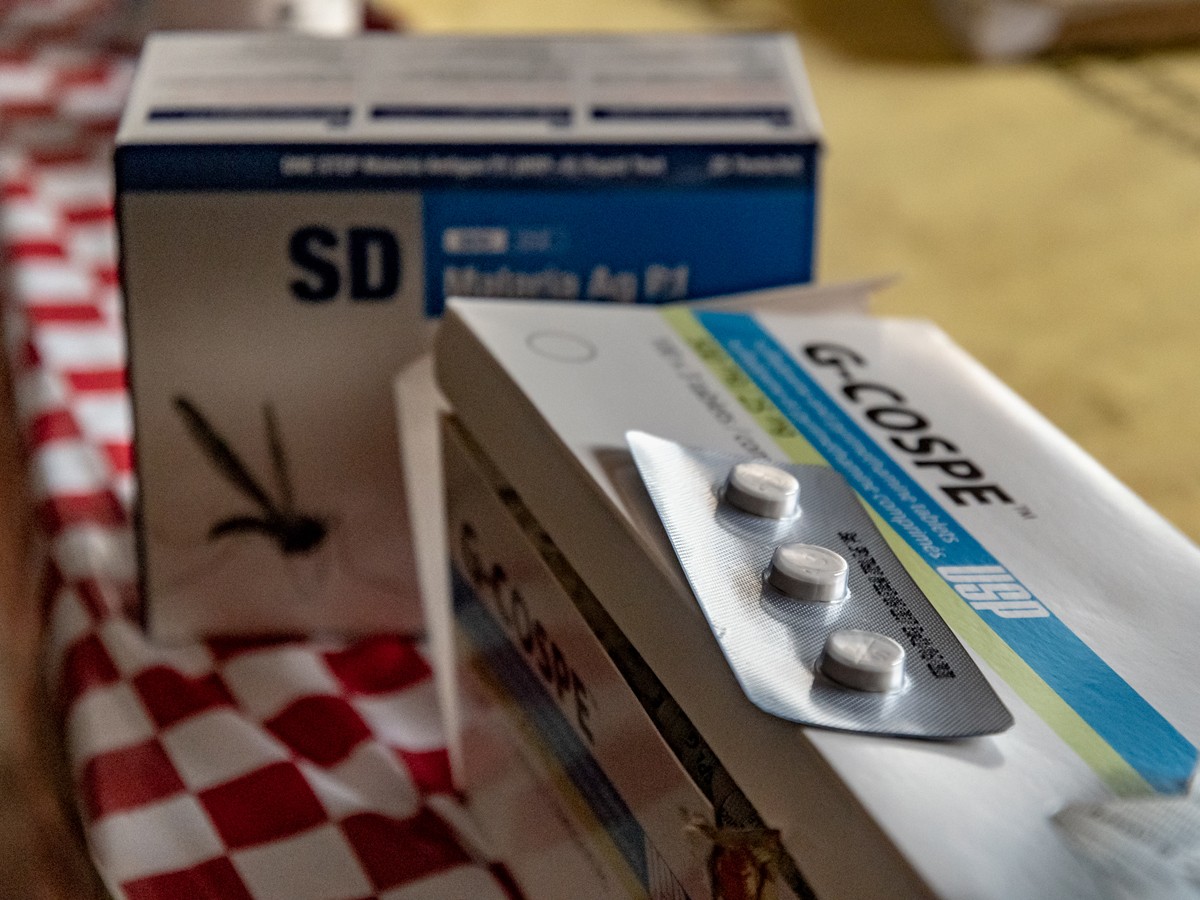
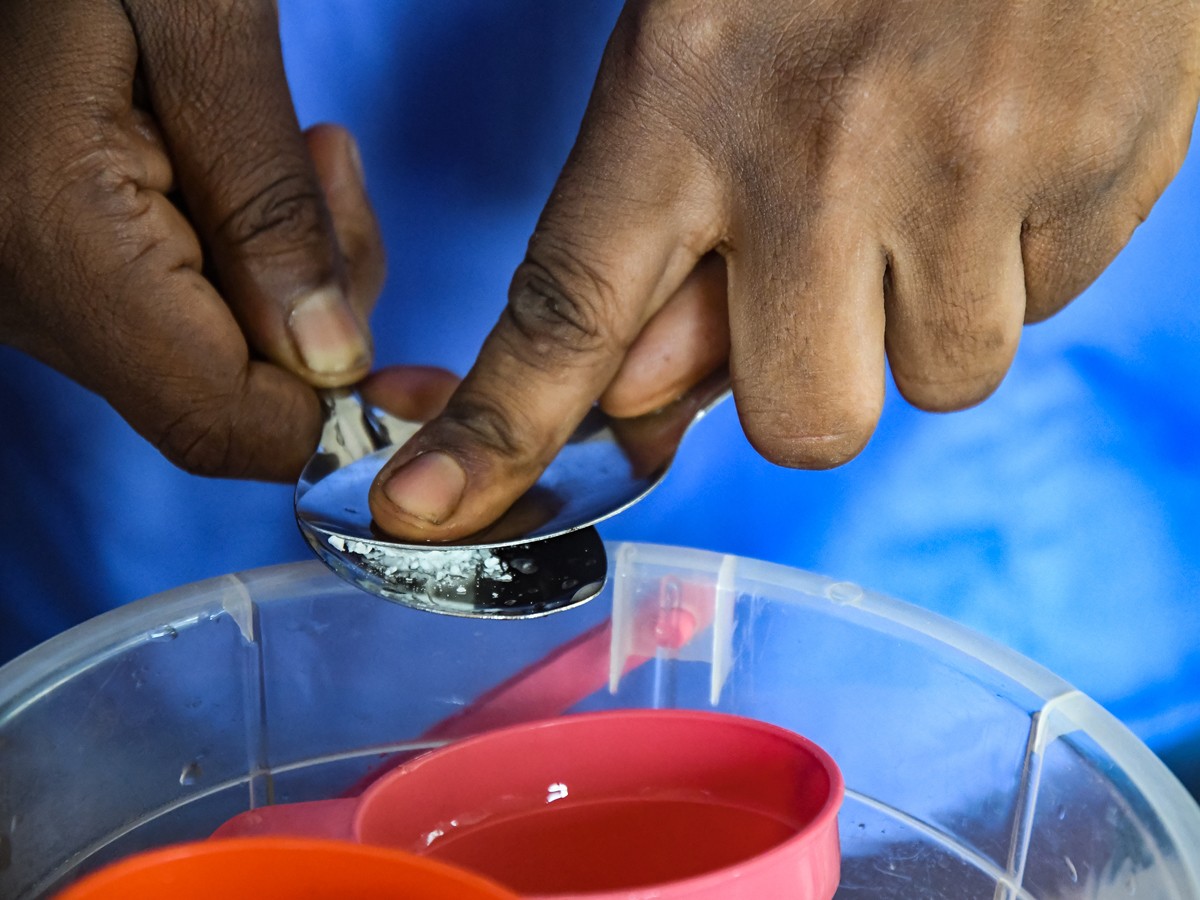
The results of the evaluation were initially shared in two smaller forums, and to further validate the findings and solicit comments and recommendations at the district level, a third dissemination event was hosted by ICAP and NMCP in Kambia on March 29, 2019. A diverse group of 65 stakeholders participated, including facility-based health care workers, district health management teams, community members, district council staff, and paramount chiefs, as well as staff from NMCP and CDC.
The outcome of the workshop, according to Frederick Yamba, the monitoring and evaluation officer who represented NMCP at the meeting, will be an increase in involvement and understanding of IPTi at the community level. “It is very important that this evaluation and dissemination event included stakeholders at the subnational level,” he said.
Speaking on behalf of the community stakeholders and paramount chiefs, Chief Pa Alikali Kindoyamily Yella II extended his appreciation to ICAP and NMCP for engaging communities in the IPTi evaluation process and the dissemination event. “This gives us a sense of ownership, and it gladdens our hearts that we are able to give input and recommendations for the implementation process moving forward,” he said. He further promised to continue communicating the importance of IPTi to community caregivers.
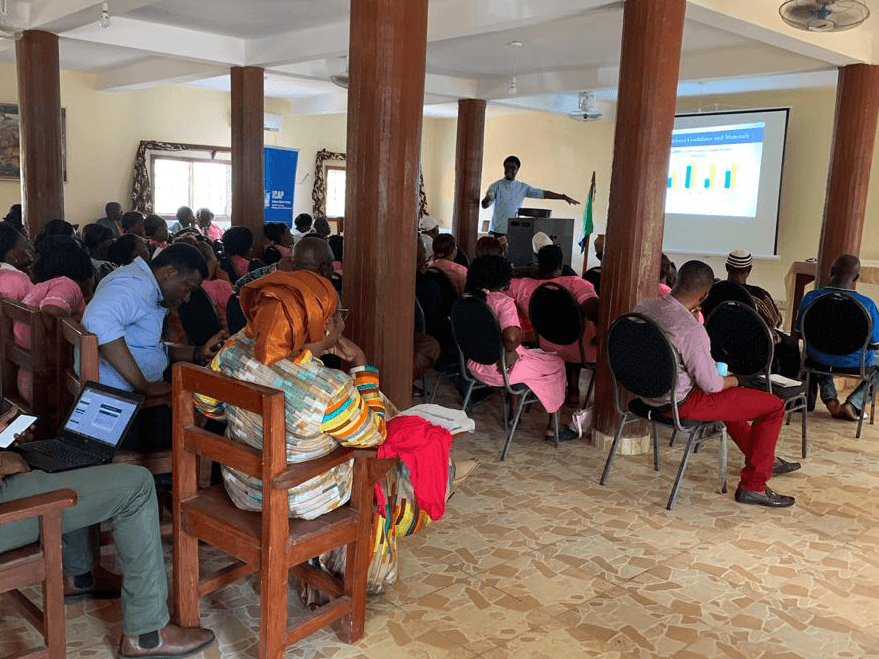
Indeed, community engagement is essential in building up and encouraging use of the country’s health systems, which are still recovering from the 2014-15 Ebola epidemic. Overwhelmed by the need for Ebola care, hospitals and clinics were unable to offer routine care such as malaria treatment or immunizations. Knowing this and fearing contagion, patients stayed away. It also became difficult to retain skilled health care workers. But since its early work evaluating Ebola community care centers in 2014, ICAP has been a strong supporter and partner with the Sierra Leone Ministry of Health and Sanitation as it seeks to strengthen national human resources for health, improve infection prevention and control, and increase immunization coverage. Today, ICAP is supporting the NMCP in its goal of reducing malaria-related illness and death by 40 percent by 2020.
“IPTi is a proven strategy to reduce malaria and its complications in infants, and I am happy that ICAP, with support from CDC, was able to partner with NMCP to scale up the program nationally,” said Mame Awa Toure, MD, MSc, country director for ICAP in Sierra Leone. “We look forward to continued partnership in strengthening Sierra Leone’s health care systems and health workforce for the country’s future.”
A global health leader since 2003, ICAP was founded at Columbia University with one overarching goal: to improve the health of families and communities. Together with its partners—ministries of health, large multilaterals, health care providers, and patients—ICAP strives for a world where health is available to all. To date, ICAP has addressed major public health challenges and the needs of local health systems through 6,000 sites across more than 30 countries. For more information about ICAP, visit: icap.columbia.edu
Photo captions—Header image: a nurse at an ICAP-supported clinic in Sierra Leone prepares to administer a solution of Fansidar (sulfadoxine-pyrimethamine), the drug that is used for IPTi. Photo 2: a nurse administers a dose of IPTi to an infant held by her mother. Photo 3: Fansidar (sulfadoxine-pyrimethamine), the drug that is used for IPTi. Photo 4: a nurse crushes the Fansidar tablet into a spoon to make a solution that can be administered to an infant. Photo 5: a diverse group of stakeholders gathers in Kambia for the evaluation dissemination workshop on the IPTi pilot project.


